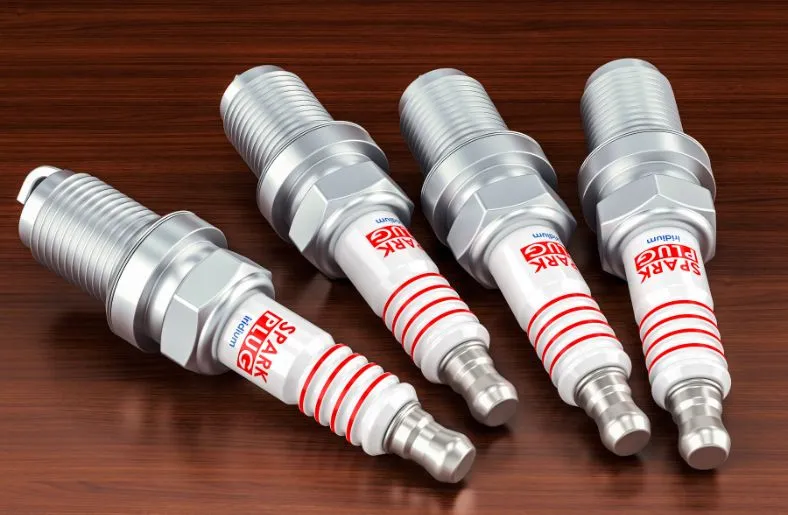As a car enthusiast, I have always been fascinated by the intricate workings of an automobile. One component that has always caught my attention is the spark plug. Spark plugs play a crucial role in the ignition process of a vehicle, and without them, the engine wouldn’t start. However, a lesser-known element is equally important in ensuring the smooth functioning of spark plugs – dielectric grease.
In this blog, we will understand the role of spark plugs and dielectric grease and whether is dielectric grease necessary for spark plugs.
Table of Contents
What are Spark Plugs and How Do They Work?
Before we delve into the significance of dielectric grease and whether is dielectric grease necessary for spark plugs, let’s first understand what spark plugs are and how they function. Spark plugs are small devices that create the spark necessary to ignite the air-fuel mixture in the combustion chamber of an engine. This ignition process sets off a chain reaction, ultimately causing the engine to run.
Inside a spark plug, there is a center electrode and a ground electrode, separated by a small gap. When an electrical current passes through the spark plug, it generates a high voltage that jumps across the gap, creating a spark. This spark ignites the compressed air-fuel mixture, leading to combustion and the engine’s operation.
Is Dielectric Grease Necessary for Spark Plugs?
The Role of Dielectric Grease in Spark Plug Function
Now that we understand the basic workings of a spark plug, let’s explore the role of dielectric grease in ensuring its proper function. Dielectric grease is a silicone-based lubricant that is specifically designed to protect electrical connections from moisture, corrosion, and other contaminants. It acts as an insulator, preventing the electrical current from finding an easier path to ground, thereby ensuring that the spark occurs across the gap of the spark plug.
Dielectric grease is typically applied to the boot of the spark plug wire, which connects to the spark plug itself. By applying a thin layer of dielectric grease to this connection, you create a barrier that repels moisture and prevents corrosion from forming. This is particularly crucial in areas with high humidity or where the vehicle is frequently exposed to water, such as during heavy rain or off-road adventures.
Benefits of Using Dielectric Grease for Spark Plugs
Now that we understand the role of dielectric grease, let’s explore the benefits it provides for spark plugs. The primary advantage of using dielectric grease is its ability to protect the spark plug connection from moisture and corrosion. This is especially important in older vehicles or those that are frequently exposed to harsh weather conditions.
Furthermore, dielectric grease also helps to improve the overall performance and longevity of spark plugs. By preventing moisture and corrosion, it ensures that the electrical current flows smoothly and consistently, leading to a reliable spark. This reliable spark translates to better fuel combustion, improved engine performance, and even enhanced fuel efficiency.
In addition to its protective properties, dielectric grease also acts as a lubricant, making it easier to install and remove spark plugs. It reduces friction between the spark plug wire and the spark plug, preventing damage to either component during the installation or removal process.
Do all Spark Plugs require a Dielectric Grease?
While dielectric grease offers numerous benefits, not all spark plugs require its use. Modern spark plug wires and boots are often designed with built-in insulators and moisture-resistant materials, reducing the need for additional protection. However, in older vehicles or those exposed to harsh conditions, dielectric grease can still be beneficial in preserving the longevity and performance of the spark plugs.
It is important to consult your vehicle’s owner’s manual or seek advice from a trusted mechanic to determine whether your spark plugs require the use of dielectric grease. They will be able to provide you with specific recommendations based on your vehicle’s make, model, and operating conditions.
Common Misconceptions about Dielectric Grease
Despite its numerous benefits, there are some common misconceptions surrounding the use of dielectric grease for spark plugs. One such misconception is that dielectric grease is conductive and can interfere with the electrical current. However, this is not the case. Dielectric grease is specifically formulated to be an insulator, meaning it does not conduct electricity. By applying a thin layer of dielectric grease, you are simply creating a protective barrier without impeding the electrical flow.
Another misconception is that dielectric grease should be applied to the spark plug itself. However, this is unnecessary and can even be detrimental to the spark plug’s performance. Dielectric grease should only be applied to the boot of the spark plug wire, where it connects to the spark plug. Applying it directly to the spark plug can potentially interfere with the spark’s ability to jump across the gap.
Related Guide: Park Tool Anti-Seize vs Grease – Which One is Best for Your Bike? (2024)
How to properly Apply Dielectric Grease to Spark Plugs
Now that we understand the importance of dielectric grease for spark plugs, let’s discuss how to properly apply it. The process is relatively straightforward and can be done in a few simple steps:
- Start by disconnecting the spark plug wire from the spark plug. You can do this by gently pulling on the boot, being careful not to damage the wire or connector.
- Inspect the boot and spark plug for any signs of damage, corrosion, or dirt. Clean them thoroughly if necessary.
- Apply a thin layer of dielectric grease to the inside of the boot. Use a small brush or your finger to spread the grease evenly, ensuring that the entire inner surface is coated.
- Reconnect the spark plug wire to the spark plug, ensuring a snug fit. You should feel a slight click or resistance when the boot is properly seated.
- Repeat the process for each spark plug wire.
By following these steps, you can ensure that the dielectric grease is applied correctly and provides optimal protection and performance for your spark plugs.
Conclusion
Is dielectric grease necessary for spark plugs? The simple answer is that dielectric grease is not necessary for all spark plugs, it offers numerous benefits in terms of protection, performance, and longevity. By creating a barrier against moisture and corrosion, dielectric grease ensures a reliable spark, leading to better fuel combustion and improved engine performance. However, it is essential to consult your vehicle’s manufacturer or a trusted mechanic to determine whether your spark plugs require the use of dielectric grease.
If you own an older vehicle or frequently drive in harsh weather conditions, applying dielectric grease to your spark plug wires can be a wise investment. Not only does it provide added protection, but it also makes the installation and removal of spark plugs easier, thanks to its lubricating properties.
So, the next time you’re working on your vehicle’s ignition system, don’t forget the importance of dielectric grease for your spark plugs. Your engine will thank you with smoother operation, improved efficiency, and a longer lifespan.

